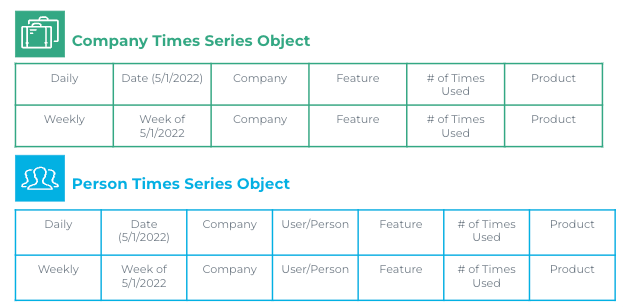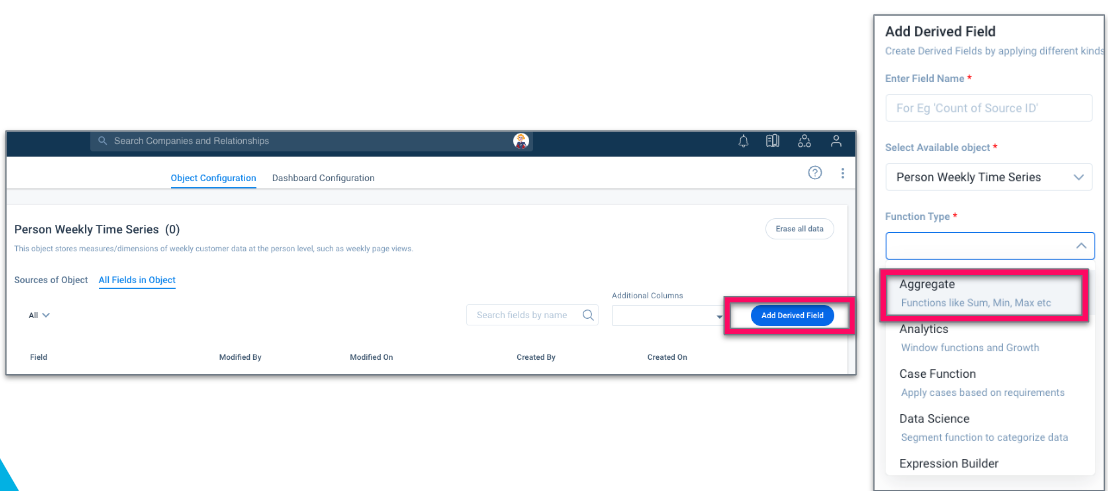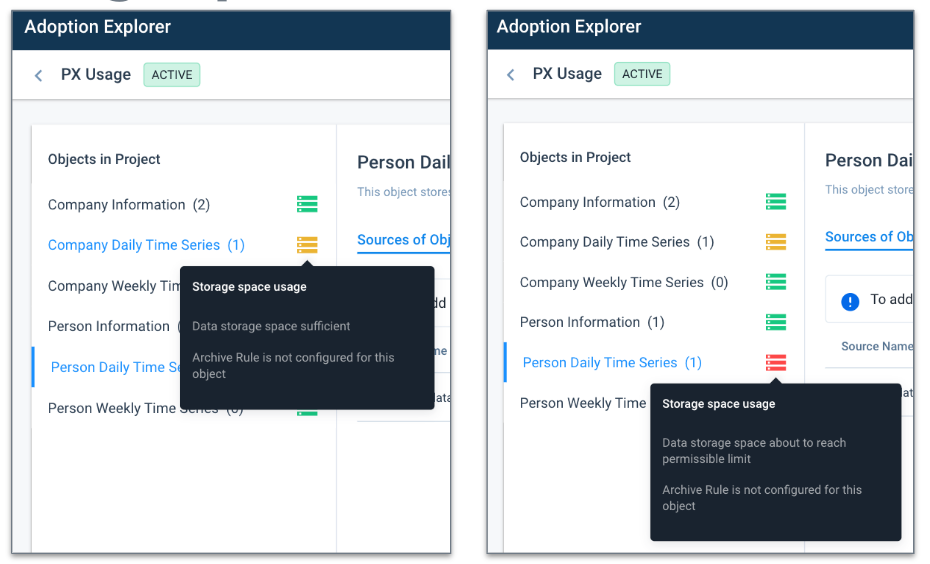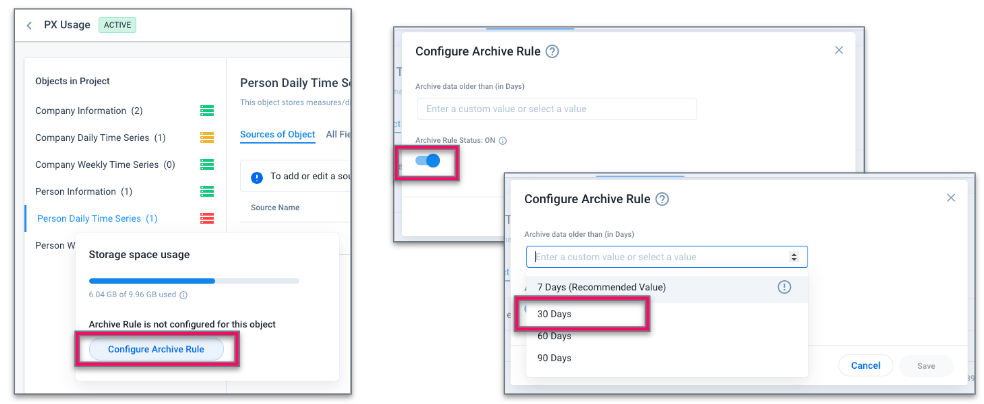When using Adoption Explorer to operationalize PX data in CS, we are provided varied levels of data within the Company and Person Time Series objects.

As you can imagine, the amount of data by company, by person, by day gives us a ton of information, so it’s important to consider data granularity.
What is data granularity?
Simply put, data granularity determines how detailed usage data should be. That is, do we want PX to send usage data to CS on the daily or weekly level? Do we need to know, on any given day, what specific features a user interacted with? Or are we more interested in trending data-how user activity is fluctuating week over week? For those of us that LOVE data, we might be inclined to choose Daily Time Series granularity more often. After all, if I can access this level of detail, why wouldn’t I? In this case, however, more data can result in more problems, like inefficient queries or disrupted functions.
But data lovers- fear not! It is still possible to access data at the daily level with a Weekly Time Series data load. Adoption Explorer automatically runs weekly jobs to aggregate data into Weekly Time Series Objects. Adding custom fields to the Weekly Time Series Object can give us a peek into daily actives without clogging up the system.

Archival Policy
You might be wondering, how do I know if i’m approaching a volume of data high enough that system inefficiencies could occur? Luckily your AE project will tell you when the data is getting too large and encourage you to establish and archival policy.

Establishing an archival policy is key to keeping your data within accessible limits. Basically, you’ll need to consider how long you want to store PX data in CS. When an archival strategy is enabled, a weekly process moves any data older than the time period you specified to your S3 bucket as a CSV file. You can continue to access this CSV data file in your Gainsight managed S3 bucket. Perhaps you’ll choose to store Daily Time Series data for 90 days. At the end of each week, a job will run to search for data that is older than 90 days. If found, this older data is cleared out of CS and placed into your S3 bucket, stored as a CSV file, and available to access if needed outside of the platform.

Archival Policy is a standard and simple Gainsight feature with little risk because archived data will remain accessible within your Gainsight managed S3 bucket. When it comes to archival strategies, heed the age-old advice:
If you love something, let it go...but keep it in an S3 bucket, just in case. 
PS → Using the New PX Connector objects get you pre-calculated metrics (i.e., 1,7,30 days active users, % change, etc.) Consider leveraging this new functionality to keep Adoption Explorer data volume under control.